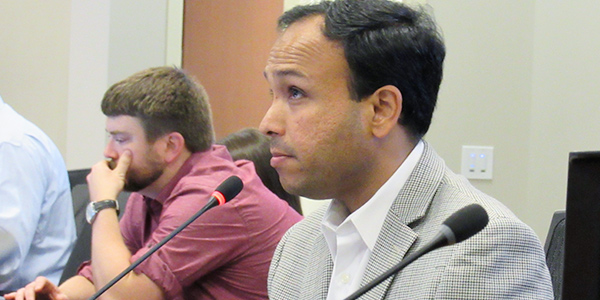MISO staff last week floated initial ideas on how the RTO could better synchronize the separate studies supporting its annual transmission planning and generator interconnection queue processes.
The RTO took up the issue after multiple renewable developers complained that their generation projects were unfairly being required to finance multimillion-dollar network interconnection upgrades that should rightly be handled in the transmission planning process. They argued MISO was relying on network upgrades to plan the system. (See MISO Begins Bid to Merge Tx, Queue Planning.)
During a Planning Advisory Committee conference call Wednesday, MISO North Region Economic Planning Manager Neil Shah said one idea would adjust the Transmission Expansion Plan (MTEP) model development timeline to allow for more coordination, analysis and stakeholder input.
Shah said MISO could reserve a window of time in the MTEP cycle to review transmission needs found across multiple planning processes, including reliability and economic benefits, and in interconnection queue studies. From there, the RTO could identify “focus areas with common issues” or transmission needs in “electrical proximity for further investigation and cost-effective solution development,” he said.
MISO would have to decide how to select project needs unearthed in interconnection studies for testing for wider economic benefits under MTEP, Shah said. The RTO might settle on testing all new 230- or 345-kV upgrades that emerge from the first phase of the queue’s three-part definitive planning phase, he said.
Shah added that MISO may need to instate a timing cutoff for upgrades identified in the interconnection queue to be evaluated as potential market efficiency projects. An early December cutoff makes sense, he said, because that falls close to the time that MISO opens the window for economic project submissions for the next year’s MTEP cycle. He said a cutoff would ensure that interconnection upgrades are evaluated on a “fresh set of models and assumptions” from the latest MTEP cycle. He said MISO would accept other stakeholder ideas through May 28.
“These are some initial ideas. Definitely we’d like to hear from stakeholders for more ideas to explore,” he said.
Stakeholders on a Planning Subcommittee conference call Thursday asked MISO to provide a spreadsheet of its modeling and assumptions across all planning processes so they could more easily detect inconsistencies that contribute to apparent discrepancies in transmission needs. MISO has also been asking stakeholders what changes it could make to methodologies and assumptions across separate planning studies to achieve more comparable treatment of transmission projects.
MISO Senior Manager of Expansion Planning Edin Habibovic said such a list runs the risk of being too long and confusing. Director of Planning Jeff Webb said the RTO “might try to hone in on the salient points.”
Clean Grid Alliance’s Rhonda Peters said MISO has been seeing more 345-kV upgrades found in generator interconnection studies assigned to interconnection customers. She said the problem may lie in dramatically different contingency mitigation requirements in local planning criteria between different transmission owners. She asked for a review of TOs’ local planning criteria.
Webb said MISO would likely arrive at “negotiated reasons” as to why the different planning processes can’t be treated exactly the same.
MISO said all of its study processes — reliability and economic planning, transmission service requests, generation interconnection, generation deliverability and generation retirements — have “a uniquely defined purpose.”





